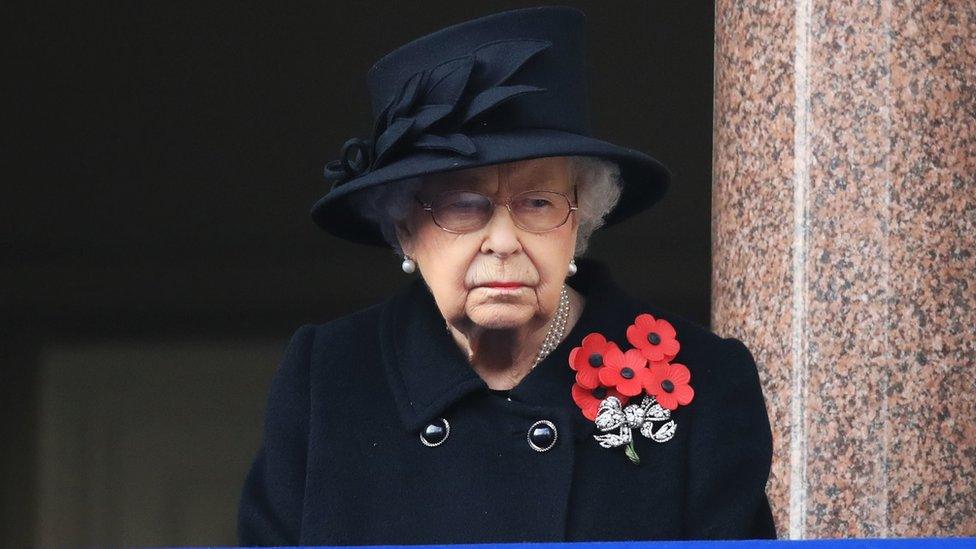Remembrance Sunday: Nation falls silent to remember the war dead
- Published
Key moments from Remembrance Sunday at the Cenotaph
The nation has fallen silent as it remembers those who died in past conflicts this Remembrance Sunday.
The Queen did not attend the service at London's Cenotaph after spraining her back.
A national two-minute silence was held at 11:00 GMT, with similar ceremonies taking place at war memorials across the country.
Events have seen the return of pre-pandemic numbers of veterans, military personnel and crowds.
The National Service of Remembrance in Whitehall was closed to the public last year, with only limited numbers taking part, because of coronavirus measures.
This year sees a return to normal, with hundreds of servicemen and women marching and lining up around the Cenotaph and nearly 10,000 veterans marching past the war memorial, watched by large crowds.

Remembrance around the UK

Services were scaled back last year because of the pandemic, with the Royal British Legion advising the public to take part remotely by displaying a poppy in their window.
At the Cenotaph, the Prince of Wales laid a wreath on behalf of the Queen, as he has done since 2017.
The Duchess of Cornwall, the Duke and Duchess of Cambridge, the Earl and Countess of Wessex and The Princess Royal also attended.
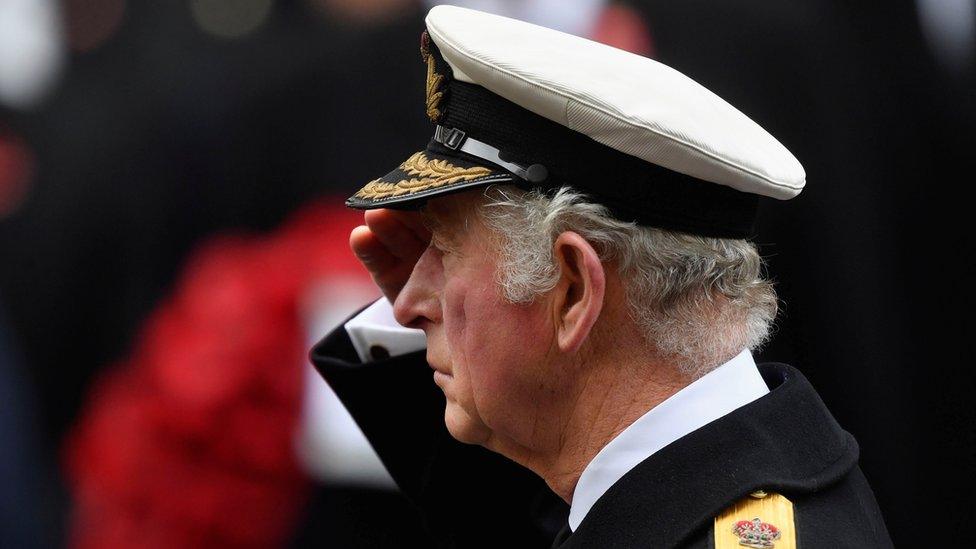
Prince Charles laid a wreath on behalf of his mother
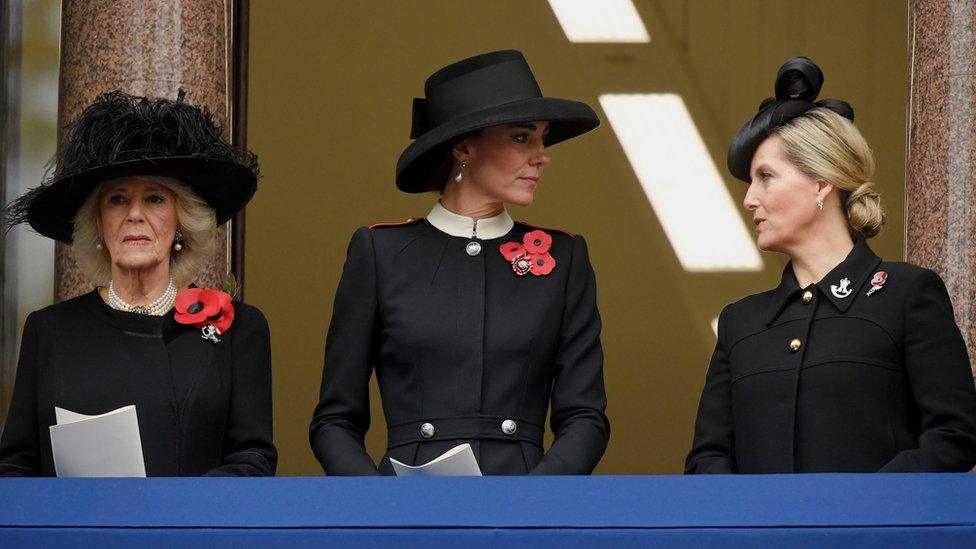
The Duchess of Cornwall, the Duchess of Cambridge and the Countess of Wessex also attended
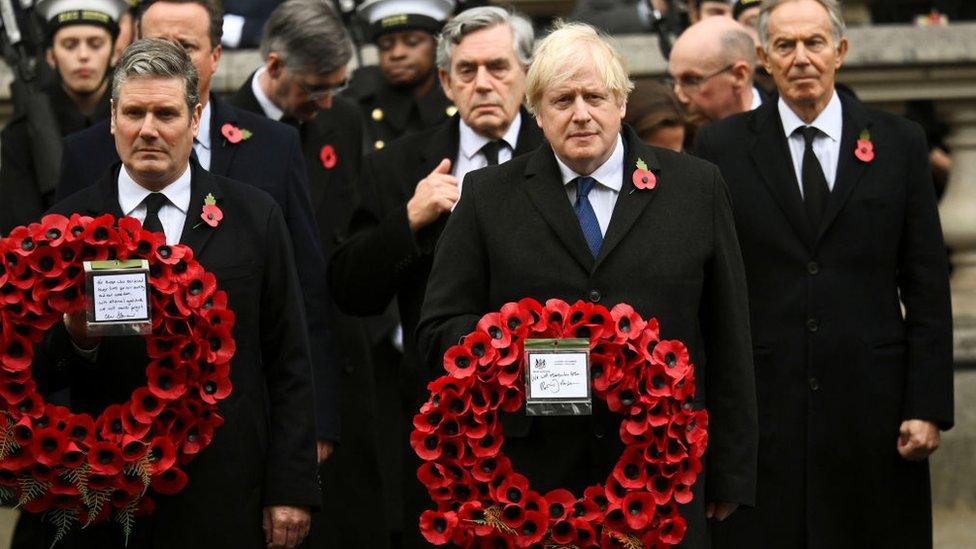
Prime ministers and former prime ministers were among those to lay wreaths
Senior politicians also laid wreaths, including Prime Minister Boris Johnson and Labour leader Sir Keir Starmer.
Mr Johnson said it was a moment to "come together to remember those who sacrificed everything in service of our country".
Sir Keir said it was "a time for us all to stop, reflect and remember those millions of people from Britain and the Commonwealth who have kept us safe through their service and sacrifice".
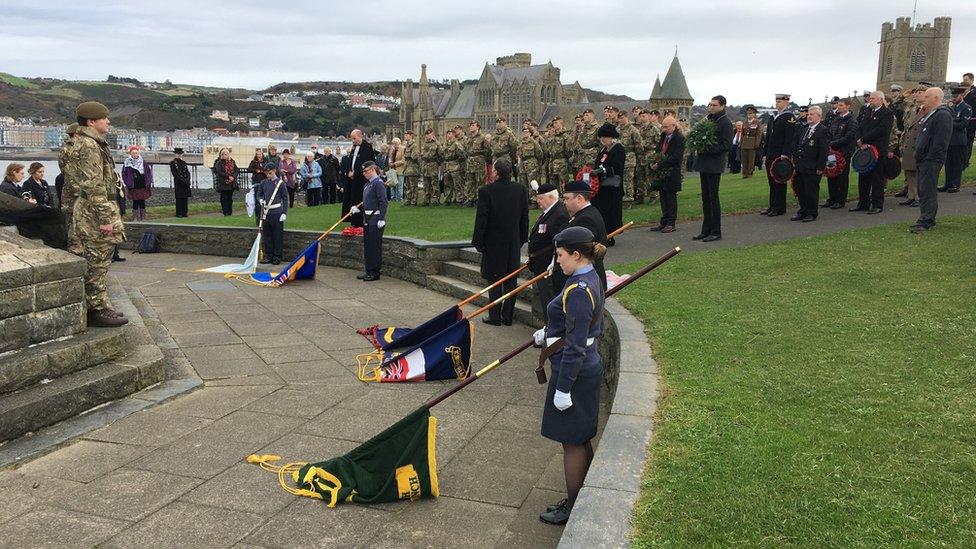
Services have taken place across the UK, including here in Aberystwyth
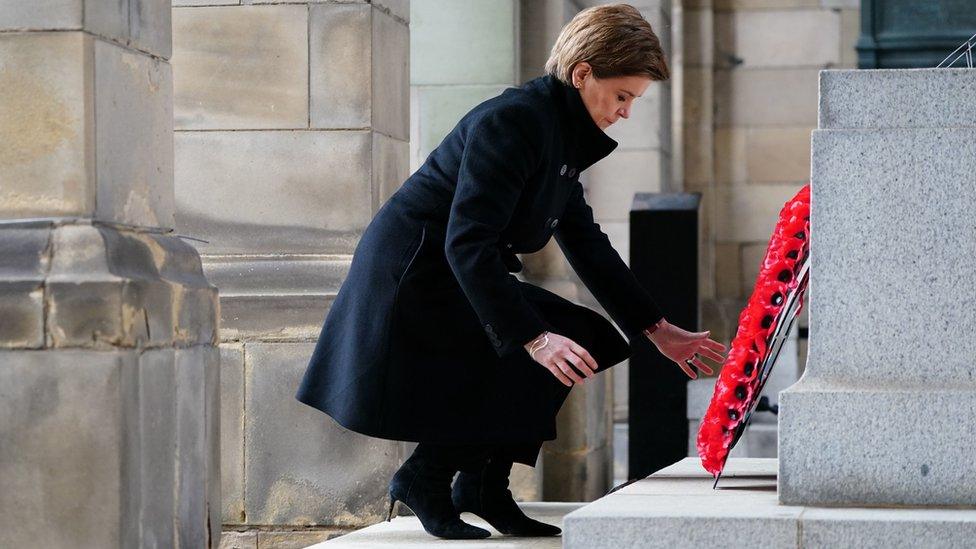
Scottish First Minister Nicola Sturgeon laid a wreath outside the City Chambers in Edinburgh
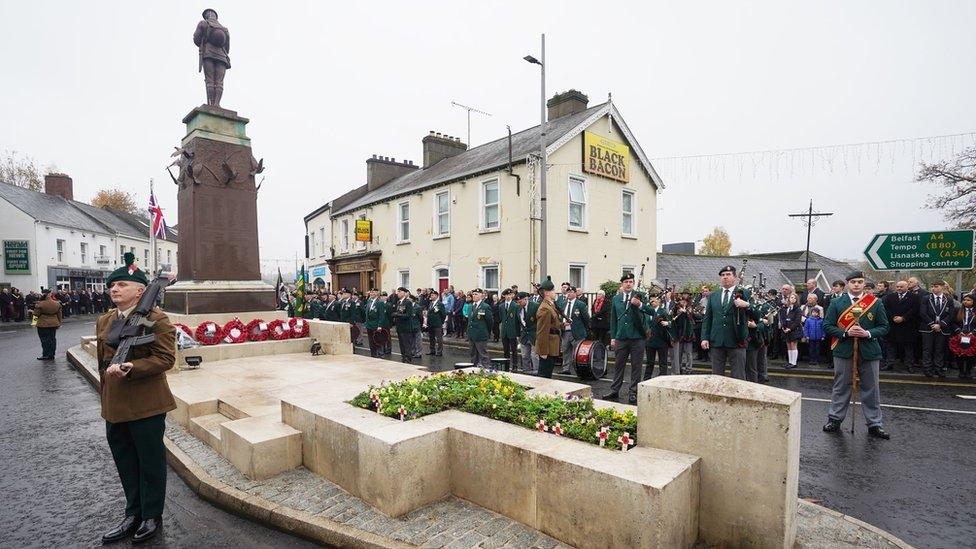
A service was also held at the Cenotaph in Enniskillen
Outgoing Chief of the Defence Staff Gen Sir Nick Carter, who also laid a wreath, said those who died did so "to protect the free and open way of life that we enjoy today".
Armed forces charity the Royal British Legion, which holds its Poppy Appeal in the run up to Remembrance Sunday each year, said this year's march included hundreds of young people from the Cadets, Guides and Scouts.
The organisation said it was "vital the torch of Remembrance is passed to younger generations".
Also marching were 21 LGBT+ veterans, including the first transgender officer to serve openly in the British Armed Forces.
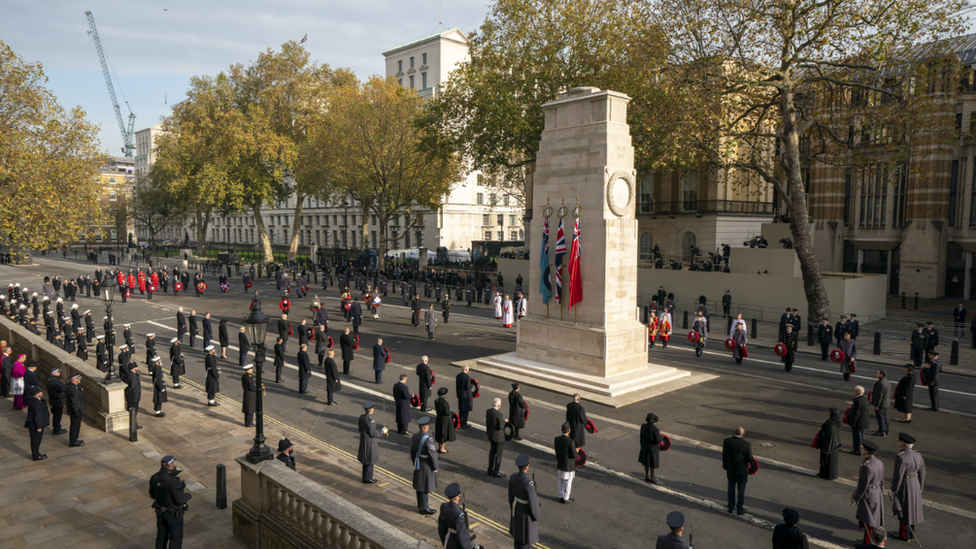
Last year saw a scaled-back service due to the coronavirus pandemic
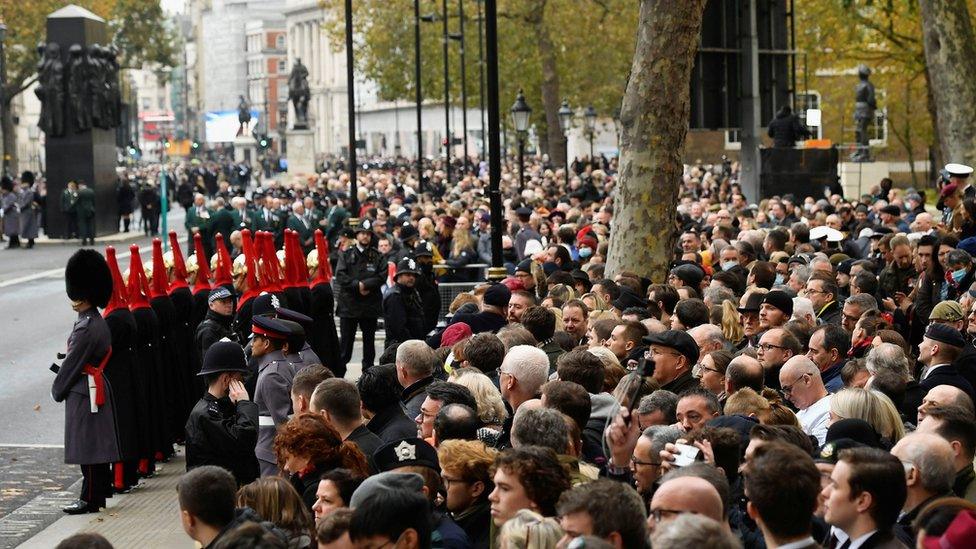
This year crowds line the streets around the Cenotaph
The Queen, who lived through World War Two and is head of the armed forces, decided on Sunday morning "with great regret" not to attend the service at the Cenotaph and was said to be "disappointed" to miss the event.
The palace previously said it was the 95-year-old monarch's "firm intention" to attend the service, after taking time away from her duties for health reasons.
Doctors had advised the monarch to rest until mid-November after she spent a night in hospital on 20 October for checks - her first overnight hospital stay in eight years.
She also missed the Festival of Remembrance at London's Royal Albert Hall on Saturday, which was attended by Prince Charles, Camilla, Prince William and Catherine.
The Remembrance Sunday service would have been her first duty in public after her hospital stay last month.
She has only missed six other Cenotaph ceremonies during her reign - on four occasions when she was on overseas visits and in 1959 and 1963, when she was pregnant with her two youngest children.
Related topics
- Published14 November 2021
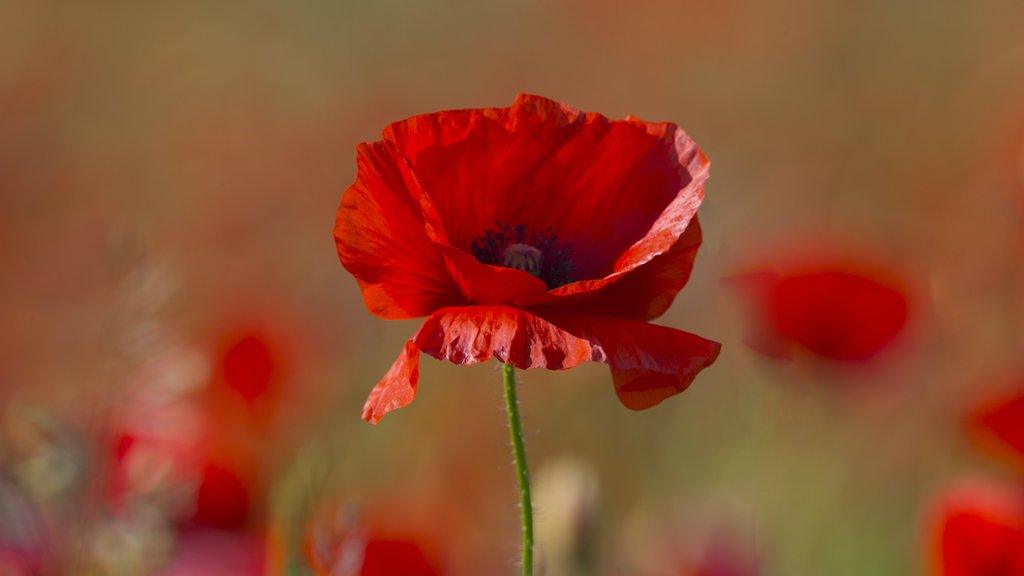
- Published11 November 2021
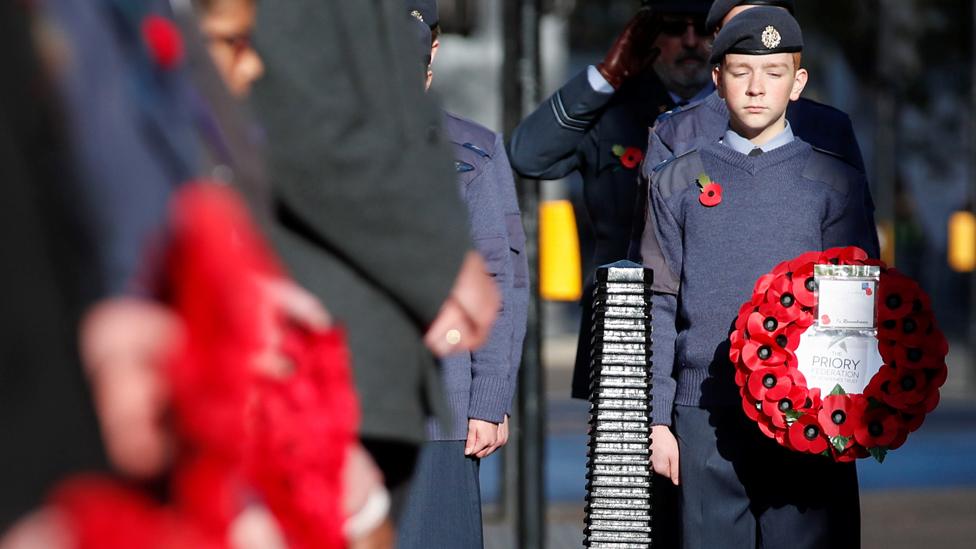
- Published8 November 2020
